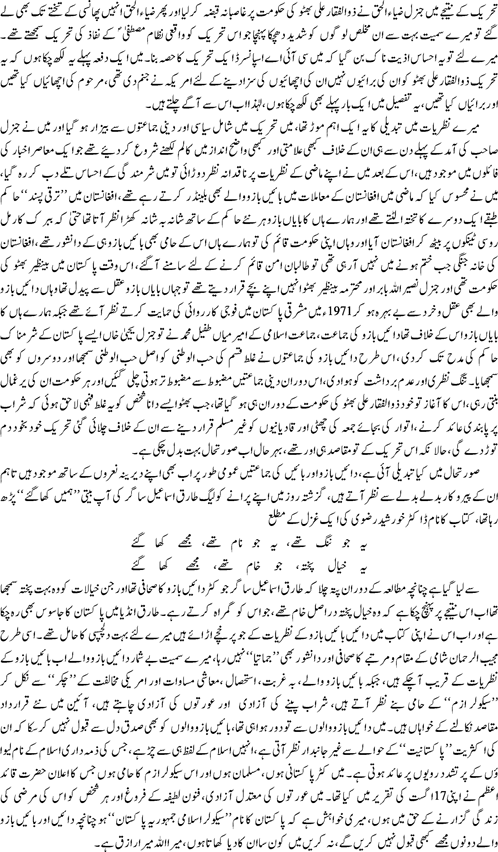Saturday, January 11, 2014
Have we forgotten what he did for Pakistan?
I do not agree to all of it, but most of it is correct...
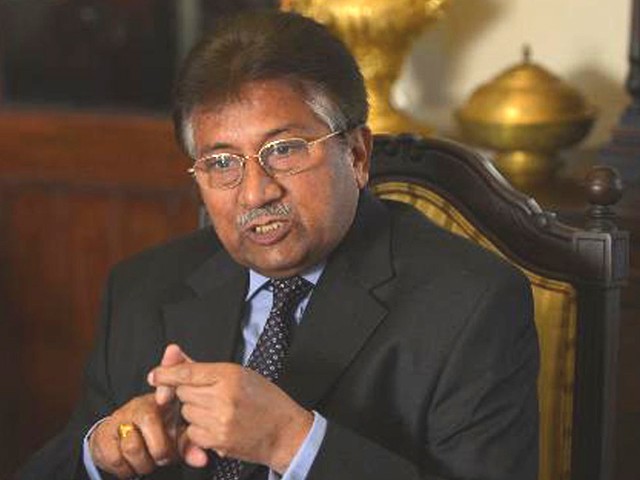 It was just another day, on October 12, 1999, in New York
City where I was an undergraduate student. Little did I realise then
that it was the day that would go down as one of the most controversial
days in Pakistan’s history.
It was just another day, on October 12, 1999, in New York
City where I was an undergraduate student. Little did I realise then
that it was the day that would go down as one of the most controversial
days in Pakistan’s history.
It was the day when the Pakistan International Airlines’ (PIA) flight PK 805, was denied landing rights in Pakistan on its return from Sri Lanka. A detour out of Pakistani territory would have meant an imminent crash of the commercial airliner, due to low fuel, with its 198 passengers on board. Amongst the passengers was none other than General Pervez Musharraf – a man who was to become the country’s first-ever Chief Executive and was destined to bring about some positive social changes in the life of the average Pakistani.
In his book Hijacking from the Ground, Mr Aminullah Chaudhry, then director general Civil Aviation Authority (CAA) in Karachi, narrated the incident in the following words:
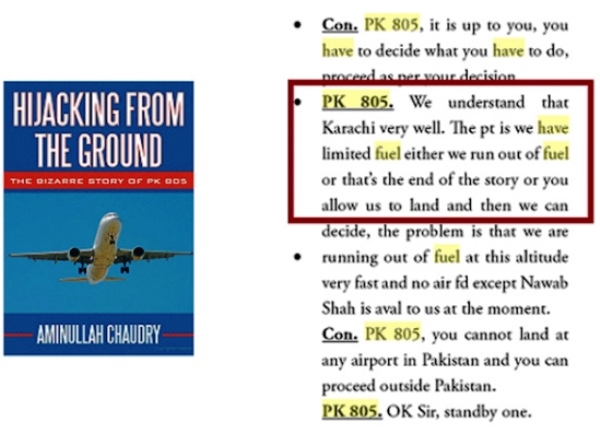
General Pervez Musharraf was truly a blessing in disguise for all
Pakistanis. Whether we dare to admit it or not, Pakistan saw some of
its best years in terms of economic progress and social stability under his rule.
I, for one – an average Pakistani – have intermediate needs to worry about which my counterparts in the West often take for granted.
Social security, which forms the hallmark of the democratic and developed governance systems of the West, is absent without a doubt. In the absence of government support, issues such as employment, wages and prices take precedence over treason trials. Although it is critical and vital to get our ‘houses’ of governance in order, usually the systems follow strong social foundations. However, in Pakistan we seem to have it the other way around – a top-down approach – where we aim to develop macro systems of governance without considering the ground realities.
These ground realities are that life and living conditions for an average Pakistani are at an all-time low. Although we saw a moderate rise in living standards during the years of General Musharraf, even those indicators have fallen during the last five years.
Ask any Pakistani and I can bet that they would say that we were more financially sound from the perspective of an average Pakistan then than we are currently.
Over the last five years, the lower-middle class has slipped into further financial decline.
Still don’t believe me?
For a quick comparison, please take a look at the infographic below to put things into perspective. The graph clearly shows that the economic decline only came about after Musharraf vacated the presidential seat. A growth rate of 5.14% is only a consequence of sound economic policies that trickled down to the common Pakistani. Yes, there was probably corruption and most likely, plenty of it. But the living standard of an average Pakistani was also rising.
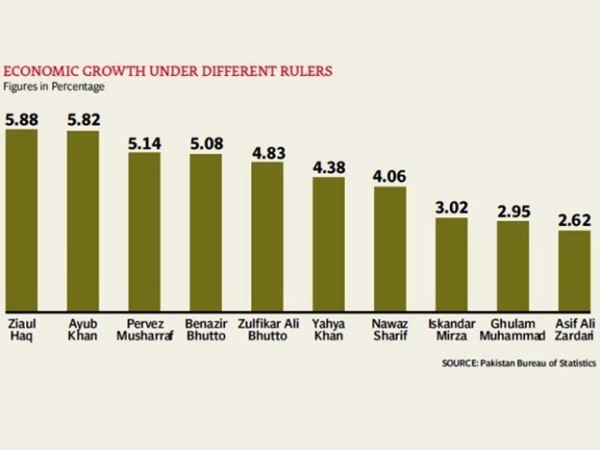
Now compare this with some figures from as recent as 2013 when inflation was at 11.3% in April.
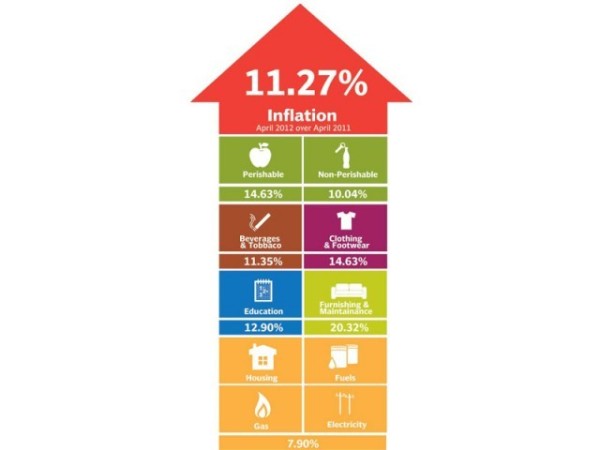
Moving onto factors other than economic prosperity, I, an average Pakistani, care more about the fact that our literacy rate rose by approximately 11% under Musharraf than about the technical fact that the constitution was held in abeyance by him.
And I can say, without a doubt, that any Pakistani, irrespective of political affiliation, cannot deny the importance of hundreds of kilometres of highways constructed, a decrease in poverty levels by approximately 10% and the establishment of a wide network of universities.
If we look at it from a more macroeconomic perspective, Pakistan’s foreign exchange reserves rose to approximately $17 billion, and sectors such as manufacturing and IT saw unprecedented growth. A flourishing manufacturing sector and IT industry translates into jobs and employment opportunities, which in turn, means social security – one of the most fundamental requirements to lower petty crimes and thefts in a society.
Unemployment actually fell during the Musharraf years and rapidly rose during the years termed as ‘democratic’.
As facts tell us, it was nothing but a massive mirage of sorts.
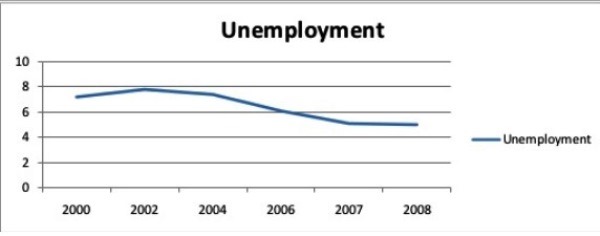
Moreover, inflation was tightly controlled as illustrated in the following graph:

Still, in case you doubt statistics reported by local bodies, here is
what the World Bank reports about the overall economic performance of
Pakistan during Musharraf’s reign.

Hence, it comes as no surprise that the International Monetary Fund (IMF) declared Pakistan as the fastest growing economy after China and India during his years.
I don’t know about you but I would pick progress of this magnitude over meaningless constitutional violations any day. Yes, building institutions is important. But strong institutions only result from a process of evolution – they cannot be crafted artificially with superficial doses of ‘democratic governance’.
We may not realise it or we may not want to admit it, but the Musharraf years were more ‘democratic’ – at least for the common man.
Why, you ask?
Democracy is a mindset
I believe that democracy is a mind-set where dissent from the status quo is not brutally persecuted and suppressed. Democracy is not ‘the best revenge’ – it is the best, period.
Did we not see the rise of electronic media with an unprecedented freedom-of-expression during the years that some term as ‘undemocratic’. The years under Musharraf were far from being undemocratic and the biggest testament to this is the proliferation of electronic media which even had the liberty to take Musharraf himself to task when the need arose.
Freedom to question the official narrative was officially encouraged
Musharraf also set the precedent for his successors. His years in power set the practise of both, media and people freely questioning those in power without incurring either the wrath of the rulers or censorship. This was a massive achievement in Pakistan’s context and a key pre-requisite for true democratic dispensations. And we must acknowledge General Musharraf for this achievement.
Acknowledgment of mistakes – the good and bad go hand-in-hand
Yes, General Musharraf did make some mistakes – blunders that were too massive to be forgiven or forgotten. And yes, some of those had huge repercussions for the country. But then, who does not err? Is there any human that has never erred?
Other than the divinely appointed prophets and messengers of God, there is no human on earth who is perfect; the good and bad go hand-in-hand. One characteristic trait that I notice in most Pakistanis is that they not only forget their benefactors but they also fail to realise that a system can never be 100% perfect.
However, it is crucial to measure the performance of governments in terms of what they delivered to the people. Most people would agree without a doubt that the most prosperous years of Pakistan were those of Ayub Khan and General Musharraf.
Given all these facts, the question in my opinion is not whether we should indulge in a trial or not. The more pertinent question is whether we can afford it.
It is a classic cost-benefit and Return-On-Investment (ROI) analysis that most business organisations indulge in. After all, a country and its management are not very different from an organisation.
In fact, a country is an organisation by all definitions and practical implementations.
Remember – it was a hijack
The most important thing that we need to remember is that the airliner was officially hijacked without the slightest regard for all the regular Pakistanis who were returning home. This was not a Pakistan Armed Forces aircraft and neither was it a private jet on contract. A diversion of the plane without adequate fuel to sustain the air travel would have caused the plane to crash. Hence, my only question to the people is this,
The treatment that he is being meted out now makes my head fall in shame and rise in awe simultaneously.
Is this the way to treat a person who actually did something to make my life better?
Is it right to haul him to court under charges that are quite superficial compared to the improvements he brought in the social infrastructure of Pakistan?
What kind of a lesson are we sending to the future leaders of Pakistan – that if you dare to work towards improving the living conditions of Pakistanis, you would not only be prosecuted, but also persecuted and hounded?
While you are in the process of answering these questions, do try and recall that the plane was on the verge of a crash with approximately 198 Pakistani civilians on board.
It may be hard for some to fathom this but rulers never have absolute power. There are millions of interests that have to be accounted for prior to taking decisions that affect nations and their citizens.
Considering the sycophants that surrounded Musharraf, it is not only remarkable that he managed to bring about this little improvement to an average Pakistani’s living standards, it is also evidence that the General’s heart was in the right place.
So, on behalf of all Pakistanis who agree with me and those who will hopefully try to understand my point-of-view, this is what I have to say to General Musharraf,
Have you forgotten all that Musharraf did for you, Pakistan?

Rulers never have absolute power. There are millions of
interests that have to be accounted for prior to taking decisions that
affect nations and their citizens. PHOTO: AFP
It was the day when the Pakistan International Airlines’ (PIA) flight PK 805, was denied landing rights in Pakistan on its return from Sri Lanka. A detour out of Pakistani territory would have meant an imminent crash of the commercial airliner, due to low fuel, with its 198 passengers on board. Amongst the passengers was none other than General Pervez Musharraf – a man who was to become the country’s first-ever Chief Executive and was destined to bring about some positive social changes in the life of the average Pakistani.
In his book Hijacking from the Ground, Mr Aminullah Chaudhry, then director general Civil Aviation Authority (CAA) in Karachi, narrated the incident in the following words:

Hijacking From The Ground. Source: Google Books (www.books.google.com.pk)
I, for one – an average Pakistani – have intermediate needs to worry about which my counterparts in the West often take for granted.
Social security, which forms the hallmark of the democratic and developed governance systems of the West, is absent without a doubt. In the absence of government support, issues such as employment, wages and prices take precedence over treason trials. Although it is critical and vital to get our ‘houses’ of governance in order, usually the systems follow strong social foundations. However, in Pakistan we seem to have it the other way around – a top-down approach – where we aim to develop macro systems of governance without considering the ground realities.
These ground realities are that life and living conditions for an average Pakistani are at an all-time low. Although we saw a moderate rise in living standards during the years of General Musharraf, even those indicators have fallen during the last five years.
Ask any Pakistani and I can bet that they would say that we were more financially sound from the perspective of an average Pakistan then than we are currently.
Over the last five years, the lower-middle class has slipped into further financial decline.
Still don’t believe me?
For a quick comparison, please take a look at the infographic below to put things into perspective. The graph clearly shows that the economic decline only came about after Musharraf vacated the presidential seat. A growth rate of 5.14% is only a consequence of sound economic policies that trickled down to the common Pakistani. Yes, there was probably corruption and most likely, plenty of it. But the living standard of an average Pakistani was also rising.

Source: File

Design: Ali Darab
And I can say, without a doubt, that any Pakistani, irrespective of political affiliation, cannot deny the importance of hundreds of kilometres of highways constructed, a decrease in poverty levels by approximately 10% and the establishment of a wide network of universities.
If we look at it from a more macroeconomic perspective, Pakistan’s foreign exchange reserves rose to approximately $17 billion, and sectors such as manufacturing and IT saw unprecedented growth. A flourishing manufacturing sector and IT industry translates into jobs and employment opportunities, which in turn, means social security – one of the most fundamental requirements to lower petty crimes and thefts in a society.
Unemployment actually fell during the Musharraf years and rapidly rose during the years termed as ‘democratic’.
As facts tell us, it was nothing but a massive mirage of sorts.

Source: Economic Evaluation of Democracies and Dictatorships (http://www.slideshare.net)

Source: Economic Evaluation of Democracies and Dictatorships (http://www.slideshare.net)

Source: Musharraf’s Economic Legacy (http://www.riazhaq.com)
I don’t know about you but I would pick progress of this magnitude over meaningless constitutional violations any day. Yes, building institutions is important. But strong institutions only result from a process of evolution – they cannot be crafted artificially with superficial doses of ‘democratic governance’.
We may not realise it or we may not want to admit it, but the Musharraf years were more ‘democratic’ – at least for the common man.
Why, you ask?
Democracy is a mindset
I believe that democracy is a mind-set where dissent from the status quo is not brutally persecuted and suppressed. Democracy is not ‘the best revenge’ – it is the best, period.
Did we not see the rise of electronic media with an unprecedented freedom-of-expression during the years that some term as ‘undemocratic’. The years under Musharraf were far from being undemocratic and the biggest testament to this is the proliferation of electronic media which even had the liberty to take Musharraf himself to task when the need arose.
Freedom to question the official narrative was officially encouraged
Musharraf also set the precedent for his successors. His years in power set the practise of both, media and people freely questioning those in power without incurring either the wrath of the rulers or censorship. This was a massive achievement in Pakistan’s context and a key pre-requisite for true democratic dispensations. And we must acknowledge General Musharraf for this achievement.
Acknowledgment of mistakes – the good and bad go hand-in-hand
Yes, General Musharraf did make some mistakes – blunders that were too massive to be forgiven or forgotten. And yes, some of those had huge repercussions for the country. But then, who does not err? Is there any human that has never erred?
Other than the divinely appointed prophets and messengers of God, there is no human on earth who is perfect; the good and bad go hand-in-hand. One characteristic trait that I notice in most Pakistanis is that they not only forget their benefactors but they also fail to realise that a system can never be 100% perfect.
However, it is crucial to measure the performance of governments in terms of what they delivered to the people. Most people would agree without a doubt that the most prosperous years of Pakistan were those of Ayub Khan and General Musharraf.
Given all these facts, the question in my opinion is not whether we should indulge in a trial or not. The more pertinent question is whether we can afford it.
It is a classic cost-benefit and Return-On-Investment (ROI) analysis that most business organisations indulge in. After all, a country and its management are not very different from an organisation.
In fact, a country is an organisation by all definitions and practical implementations.
Remember – it was a hijack
The most important thing that we need to remember is that the airliner was officially hijacked without the slightest regard for all the regular Pakistanis who were returning home. This was not a Pakistan Armed Forces aircraft and neither was it a private jet on contract. A diversion of the plane without adequate fuel to sustain the air travel would have caused the plane to crash. Hence, my only question to the people is this,
“Is a treason trial more important than the verdict of death that was officially handed to each one of those Pakistanis on board PK-805?”Please let us invoke some sensibility and realise that even though General Musharraf did make mistakes, he also made sincere and honest efforts to transform the living standards for an average Pakistani with the little amount of ‘real power’ that he wielded.
The treatment that he is being meted out now makes my head fall in shame and rise in awe simultaneously.
Is this the way to treat a person who actually did something to make my life better?
Is it right to haul him to court under charges that are quite superficial compared to the improvements he brought in the social infrastructure of Pakistan?
What kind of a lesson are we sending to the future leaders of Pakistan – that if you dare to work towards improving the living conditions of Pakistanis, you would not only be prosecuted, but also persecuted and hounded?
While you are in the process of answering these questions, do try and recall that the plane was on the verge of a crash with approximately 198 Pakistani civilians on board.
It may be hard for some to fathom this but rulers never have absolute power. There are millions of interests that have to be accounted for prior to taking decisions that affect nations and their citizens.
Considering the sycophants that surrounded Musharraf, it is not only remarkable that he managed to bring about this little improvement to an average Pakistani’s living standards, it is also evidence that the General’s heart was in the right place.
So, on behalf of all Pakistanis who agree with me and those who will hopefully try to understand my point-of-view, this is what I have to say to General Musharraf,
“Dear Sir,
On behalf of all Pakistanis, I apologise to you. This is the least that I could do considering how you worked to make my life better. Thank you for your efforts.”
Friday, January 10, 2014
A Scientist's Predictions 50 years ago for 2014
A Scientist's Predictions
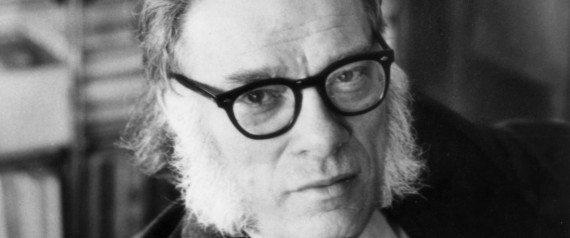
Fifty years ago, American scientist and author Isaac Asimov published a story in The New York Times that listed his predictions for what the world would be like in 2014.
Asimov wrote more than 500 books in his lifetime, including science fiction novels and nonfiction scientific books, so he was well-versed in thinking about the future.
In his article, called "Visit to the World's Fair of 2014," Asimov got a whole bunch of his guesses right -- and his other predictions are making us a little envious of his imagined future.
Correct Predictions
"By 2014, electroluminescent panels will be in common use."
You may not realize what electroluminescent panels are, but these thin, bright panels are used in retail displays, signs, lighting and flat panel TVs.
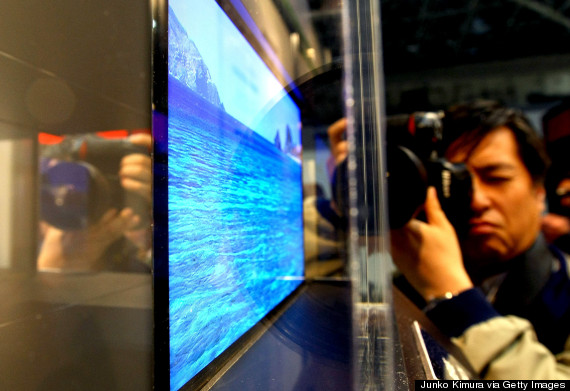
"Gadgetry will continue to relieve mankind of tedious jobs."
True.
"Communications will become sight-sound and you will see as well as hear the person you telephone."
Skype, Google Hangout, FaceTime and more have made video chatting common.
"The screen can be used not only to see the people you call but also for studying documents and photographs and reading passages from books."
With computers, tablets and smartphones, all of this is true.
“Robots will neither be common nor very good in 2014, but they will be in existence.”
If you define "robot" as a computer that looks and acts like a human, then this guess is definitely true. We don't have robot servants or robot friends, but we do have robots that can twerk, do the "Thriller" dance and sing. It sounds like our priorities have been off...
Close, But Not Exact, Predictions
"Kitchen units will be devised that will prepare ‘automeals,’ heating water and converting it to coffee; toasting bread; frying, poaching or scrambling eggs, grilling bacon, and so on."
We have Keurigs and other instant coffee machines -- so he's not too far off there. But as for a total "automeal," we still can't press a button and have breakfast ready. Someone please get on this ASAP.
"Ceilings and walls will glow softly, and in a variety of colors that will change at the touch of a push button.”
This could probably be true if we felt like it, since the technology exists. But glowing walls and ceilings aren't extraordinarily popular.

“[T]he world population will be 6,500,000,000."
Good guess, but it's actually more like 7,100,000,000.
"Mankind will therefore have become largely a race of machine tenders. Schools will have to be oriented in this direction."
Sure, computer science has become an important field of study, but we have hardly become "a race of machine tenders." Of course, a lot of us are never far from a machine (our smartphones) that we pretty much constantly "tend."
Incorrect Predictions
“The appliances of 2014 will have no electric cords, of course, for they will be powered by long-lived batteries running on radioisotopes.”
We might still use electric cords, but at least we have cool surge protectors, right?
"All the high-school students will be taught the fundamentals of computer technology will become proficient in binary arithmetic and will be trained to perfection in the use of the computer languages that will have developed out of those like the contemporary 'Fortran.'"
We wish this were true. Unfortunately, coding classes are still relatively uncommon in high schools, and just 1.4 percent of high school AP students took the computer science exam in 2012.
We will live in a "society of enforced leisure,” and "the most glorious single word in the vocabulary will have become work!”
Sigh. Not yet, Asimov, not yet.
Isaac Asimov's Predictions For 2014 From 50 Years Ago Are Eerily Accurate
By Alexis Kleinman

Asimov wrote more than 500 books in his lifetime, including science fiction novels and nonfiction scientific books, so he was well-versed in thinking about the future.
In his article, called "Visit to the World's Fair of 2014," Asimov got a whole bunch of his guesses right -- and his other predictions are making us a little envious of his imagined future.
Correct Predictions
"By 2014, electroluminescent panels will be in common use."
You may not realize what electroluminescent panels are, but these thin, bright panels are used in retail displays, signs, lighting and flat panel TVs.

"Gadgetry will continue to relieve mankind of tedious jobs."
True.
"Communications will become sight-sound and you will see as well as hear the person you telephone."
Skype, Google Hangout, FaceTime and more have made video chatting common.
"The screen can be used not only to see the people you call but also for studying documents and photographs and reading passages from books."
With computers, tablets and smartphones, all of this is true.
“Robots will neither be common nor very good in 2014, but they will be in existence.”
If you define "robot" as a computer that looks and acts like a human, then this guess is definitely true. We don't have robot servants or robot friends, but we do have robots that can twerk, do the "Thriller" dance and sing. It sounds like our priorities have been off...
Close, But Not Exact, Predictions
"Kitchen units will be devised that will prepare ‘automeals,’ heating water and converting it to coffee; toasting bread; frying, poaching or scrambling eggs, grilling bacon, and so on."
We have Keurigs and other instant coffee machines -- so he's not too far off there. But as for a total "automeal," we still can't press a button and have breakfast ready. Someone please get on this ASAP.
"Ceilings and walls will glow softly, and in a variety of colors that will change at the touch of a push button.”
This could probably be true if we felt like it, since the technology exists. But glowing walls and ceilings aren't extraordinarily popular.

“[T]he world population will be 6,500,000,000."
Good guess, but it's actually more like 7,100,000,000.
"Mankind will therefore have become largely a race of machine tenders. Schools will have to be oriented in this direction."
Sure, computer science has become an important field of study, but we have hardly become "a race of machine tenders." Of course, a lot of us are never far from a machine (our smartphones) that we pretty much constantly "tend."
Incorrect Predictions
“The appliances of 2014 will have no electric cords, of course, for they will be powered by long-lived batteries running on radioisotopes.”
We might still use electric cords, but at least we have cool surge protectors, right?
"All the high-school students will be taught the fundamentals of computer technology will become proficient in binary arithmetic and will be trained to perfection in the use of the computer languages that will have developed out of those like the contemporary 'Fortran.'"
We wish this were true. Unfortunately, coding classes are still relatively uncommon in high schools, and just 1.4 percent of high school AP students took the computer science exam in 2012.
We will live in a "society of enforced leisure,” and "the most glorious single word in the vocabulary will have become work!”
Sigh. Not yet, Asimov, not yet.
We do not Deserve People Like Aitzaz by Jibran Nasir
We really do not deserve such heroes.. our confusion is killing and harming us..
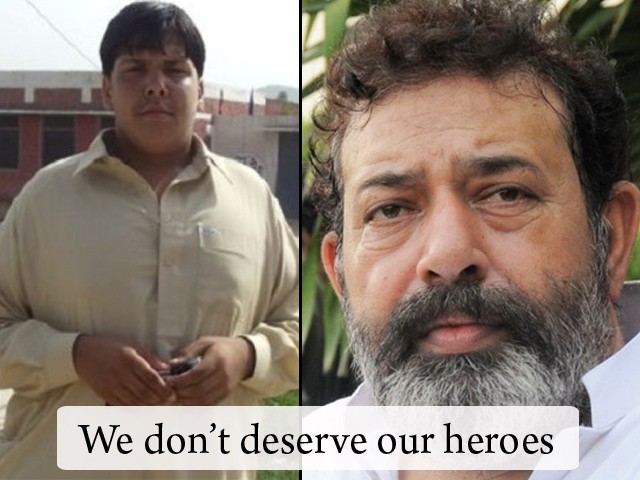 This blog post is perhaps more directed towards the voters and members of the Pakistan Muslim League Nawaz (PML-N), Pakistan Tehreek-e-Insaf
(PTI), Jamiat Ulema-e-Islam (JUI) and Jamaat-e-Islami (JI), than to
anyone else. It is written for those who do not see banned militant
outfits as legitimate threats to Pakistan.
This blog post is perhaps more directed towards the voters and members of the Pakistan Muslim League Nawaz (PML-N), Pakistan Tehreek-e-Insaf
(PTI), Jamiat Ulema-e-Islam (JUI) and Jamaat-e-Islami (JI), than to
anyone else. It is written for those who do not see banned militant
outfits as legitimate threats to Pakistan.
This is for all those people who have been led by their leaders to believe that certain terrorists were previously die-hard patriots. For all those who fail to read between the lines and do not realise how their leaders have, on every occasion, very cleverly manipulated their statements and, in doing so, guided the people towards ignorance.
All those who believe that Shias and Sunnis are both being hunted down in the same manner and fashion. All those who refuse to acknowledge that terrorist organisations are not only engaging in an armed conflict but also polarising the society through their literature, sermons and fatwas (decree).
All those people who believe that drones are the ultimate and the only reason for terrorism in Pakistan and if somehow we shoot one down or stop the USA from sending anymore, then the militants will go back to being the good Samaritans they always were. Their leaders will be seen either submitting their CV’s for government jobs based on ‘educational qualifications’ or perhaps running a small general store selling perishables in Dera Adam Khel. Such ideas only constitute wishful thinking – nothing more.
A little review of the numbers here is necessary.
Drone strikes in Pakistan began in 2004. In 2003, 140 civilians and 24 security personnel were killed by terrorists.
In 2004, four civilians were killed by one drone strike, whereas around 435 civilians and 184 security personnel were killed by terrorists, in the same year.
Similarly drone strikes in 2005, 2006 and 2007 altogether claimed a total of 115 civilian casualties. The same three years saw 2,560 civilians and 1003 security personnel killed by terrorists.
This is just an introduction as to how irrational the correlation between drone strikes and terrorism is. This is in no way a sign of support for drone strikes but just a plea to not to confuse the two differing issues.
Then 2014 started with a bang. A bang in Hangu and a bang in Karachi, and once again Ali Azmat’s song ‘bomb phatta’ challenges ‘Pak sar zameen’ for the spot of the national anthem.
The blast in Karachi took the life of ace cop Chaudhry Aslam and the responsibility has been accepted by the Tehreek-e-Taliban Pakistan (TTP). However, it is not alleged that they are responsible. They have written a page long letter expressing their happiness and contentment on having killed Chaudhry Aslam.
Representatives of the Pakistan Peoples Party (PPP), the Muttahida Qaumi Movement (MQM) and the PTI all released statements, sending their condolences to Chaudhary Aslam’s family. However, where PPP and MQM, in their statements, held the TTP responsible, PTI deliberately chose to remain silent on who killed Chaudhary Aslam.
My question is, why?
How can our leaders express sincere grief on someone’s demise if they cannot even show sincere condemnation?
How do our leaders claim to respect our heroes if they do not demand action against those who killed them?
How do our leaders promise to solve our problems if they do not even identify them?
That blast in Hangu took the life of one 14-year-old boy Aitzaz Hussain. Aitzaz was standing outside his school with two other friends when the suicide bomber approached. What he did to save his school and the courageous feats with which he sacrificed his life have few parallels. However, what people have failed to realise is the potential graveness of this situation. The school had around 2,000 students inside. The specific area in Hangu, Ibrahimzai, where this school was located, is a Shia majority area. This is not a mere coincidence.
Since it was a school, it is safe to assume that majority of those 2,000 students were under 18 years of age. Had Aitizaz not stopped the bomber at the gates, can we even begin to imagine how many parents would have been first seen trying to identify the bodies of their children in hospitals and then queuing up for their burials?
Perhaps Aitizaz, in that moment when his two friends ran inside on seeing the bomber, realised the gravity of the situation and stood his ground.
Since Hangu is in Khyber-Pakhtunkhwa (K-P), I am very much sure that Aitzaz knew about the PTI. Let us assume that he also knew about PTI’s stance on terrorist organisations i.e. we should negotiate with them.
So in that situation, Aitizaz should have perhaps offered tea to the bomber, asked him to sit down and reason out as to why does he wants to blow up children, based on their belief system. Perhaps after a cup of hot tea and a few cookies later, the bomber would have realised what a grave mistake he was making. And Aitizaz, in turn, would have proved to us what a great success PTI’s policy is.
However, that 14-year-old kid knew what he had to do to save the lives of his classmates. He knew that tea, cookies and a handshake were not going to stop the bomber from blowing himself up. He believed in something more than the nonsense being fed to us by our leaders. I am yet to see a public statement from any party, including the MQM and PPP, which calls for action against the LEJ while praising the sacrifice of Aitzaz Hussain.
Our nation does not deserve sons like Chaudhary Aslam, Major General Niazi and Aitizaz, when we do not have the courage to look in the eyes of their killers and say,
The 14-year-old Aitizaz had more guts and courage then our elected representatives. He faced danger like a true patriot and knew the real price we have to pay for the freedom to live in peace.
Tweeting and releasing press statements condemning Aitizaz’s death, while not identifying his killers at the same time, is nothing but naked hypocrisy.
I hope our leaders don’t fall any lower in the months to come this year.
We do not deserve people like Aitzaz Hussain and Chaudhry Aslam
By Jibran Nasir

How do our leaders claim to respect our heroes if they do not
demand action against those who killed them? How do our leaders promise
to solve our problems if they do not even identify them?
This is for all those people who have been led by their leaders to believe that certain terrorists were previously die-hard patriots. For all those who fail to read between the lines and do not realise how their leaders have, on every occasion, very cleverly manipulated their statements and, in doing so, guided the people towards ignorance.
All those who believe that Shias and Sunnis are both being hunted down in the same manner and fashion. All those who refuse to acknowledge that terrorist organisations are not only engaging in an armed conflict but also polarising the society through their literature, sermons and fatwas (decree).
All those people who believe that drones are the ultimate and the only reason for terrorism in Pakistan and if somehow we shoot one down or stop the USA from sending anymore, then the militants will go back to being the good Samaritans they always were. Their leaders will be seen either submitting their CV’s for government jobs based on ‘educational qualifications’ or perhaps running a small general store selling perishables in Dera Adam Khel. Such ideas only constitute wishful thinking – nothing more.
A little review of the numbers here is necessary.
Drone strikes in Pakistan began in 2004. In 2003, 140 civilians and 24 security personnel were killed by terrorists.
In 2004, four civilians were killed by one drone strike, whereas around 435 civilians and 184 security personnel were killed by terrorists, in the same year.
Similarly drone strikes in 2005, 2006 and 2007 altogether claimed a total of 115 civilian casualties. The same three years saw 2,560 civilians and 1003 security personnel killed by terrorists.
This is just an introduction as to how irrational the correlation between drone strikes and terrorism is. This is in no way a sign of support for drone strikes but just a plea to not to confuse the two differing issues.
Then 2014 started with a bang. A bang in Hangu and a bang in Karachi, and once again Ali Azmat’s song ‘bomb phatta’ challenges ‘Pak sar zameen’ for the spot of the national anthem.
The blast in Karachi took the life of ace cop Chaudhry Aslam and the responsibility has been accepted by the Tehreek-e-Taliban Pakistan (TTP). However, it is not alleged that they are responsible. They have written a page long letter expressing their happiness and contentment on having killed Chaudhry Aslam.
Representatives of the Pakistan Peoples Party (PPP), the Muttahida Qaumi Movement (MQM) and the PTI all released statements, sending their condolences to Chaudhary Aslam’s family. However, where PPP and MQM, in their statements, held the TTP responsible, PTI deliberately chose to remain silent on who killed Chaudhary Aslam.
My question is, why?
How can our leaders express sincere grief on someone’s demise if they cannot even show sincere condemnation?
How do our leaders claim to respect our heroes if they do not demand action against those who killed them?
How do our leaders promise to solve our problems if they do not even identify them?
That blast in Hangu took the life of one 14-year-old boy Aitzaz Hussain. Aitzaz was standing outside his school with two other friends when the suicide bomber approached. What he did to save his school and the courageous feats with which he sacrificed his life have few parallels. However, what people have failed to realise is the potential graveness of this situation. The school had around 2,000 students inside. The specific area in Hangu, Ibrahimzai, where this school was located, is a Shia majority area. This is not a mere coincidence.
Since it was a school, it is safe to assume that majority of those 2,000 students were under 18 years of age. Had Aitizaz not stopped the bomber at the gates, can we even begin to imagine how many parents would have been first seen trying to identify the bodies of their children in hospitals and then queuing up for their burials?
Perhaps Aitizaz, in that moment when his two friends ran inside on seeing the bomber, realised the gravity of the situation and stood his ground.
Since Hangu is in Khyber-Pakhtunkhwa (K-P), I am very much sure that Aitzaz knew about the PTI. Let us assume that he also knew about PTI’s stance on terrorist organisations i.e. we should negotiate with them.
So in that situation, Aitizaz should have perhaps offered tea to the bomber, asked him to sit down and reason out as to why does he wants to blow up children, based on their belief system. Perhaps after a cup of hot tea and a few cookies later, the bomber would have realised what a grave mistake he was making. And Aitizaz, in turn, would have proved to us what a great success PTI’s policy is.
However, that 14-year-old kid knew what he had to do to save the lives of his classmates. He knew that tea, cookies and a handshake were not going to stop the bomber from blowing himself up. He believed in something more than the nonsense being fed to us by our leaders. I am yet to see a public statement from any party, including the MQM and PPP, which calls for action against the LEJ while praising the sacrifice of Aitzaz Hussain.
Our nation does not deserve sons like Chaudhary Aslam, Major General Niazi and Aitizaz, when we do not have the courage to look in the eyes of their killers and say,
“We will not forget and we will not forgive.”Brave men, either in uniforms of the police, the army or the school, are laying down their lives, not realising that the leaders of this country are making sure that their sacrifice goes in vain.
The 14-year-old Aitizaz had more guts and courage then our elected representatives. He faced danger like a true patriot and knew the real price we have to pay for the freedom to live in peace.
Tweeting and releasing press statements condemning Aitizaz’s death, while not identifying his killers at the same time, is nothing but naked hypocrisy.
I hope our leaders don’t fall any lower in the months to come this year.
A Muharram in Quetta when it was Peaceful
Religious Tolerance is the need of the hour...
 Gone are the days when Muharram was observed by
nearly all Muslims belonging to different sects of Islam. Now it is
observed strictly under security from law enforcement agencies.
Gone are the days when Muharram was observed by
nearly all Muslims belonging to different sects of Islam. Now it is
observed strictly under security from law enforcement agencies.
In Quetta, my neighbourhood used to be an example of religious harmony; non-Shiite Baloch, Brahvi and Pashtoon, all honoured the religious sentiments attached to the month of Muharram.
Playing football, flying kites and sharing our lunches with our friends, regardless of what sect they came from, was a part of my everyday life as a child. There was no objection from my elders regarding my routine as they used to socialise with our neighbours on a daily basis as well, which also included events such as weddings, funerals, Eids and Muharram.
No religious hatred ever existed between the people. Life was uncomplicated and harmonious.
During Muharram’s mourning processions I, being an alam (flagstaff) bearer, would take the alam inside the homes of non-Shias. The women would fasten a colourful chaadar around it to express reverence and high regard to Imam Hussain (AS). They normally didn’t take part in the matham but would attend different majalis (congregations) and distribute “Nazar-o-Niyaz” (alms) in the neighbourhood.
On Ashura, my father would take me to the stall of Bohra Muslims near Mizan Chowk where I would have a refreshing glass of rose syrup mixed with milk and black khashkhash (poppy seeds), my favourite. Barelvi Muslims would distribute a chunk of cooked lamb meat wrapped in naan; this attracted many more people, mourners and passersby alike.
A group of Pashtun brothers on Pir Abul Khair road would distribute mouth-watering biryani. The prominent stall of Ahle Sunnat with its huge banner was easily identifiable and would attract the procession of mourners to come and drink some sharbat.
Paramedic staff and scouts organisations, inclusive of both Shia and non-Shia sects, would fill up the main route of the mourning procession and in between, Sunni religious scholars were allowed to lecture the mourners on Islam. In short, Muharram was a month in which the highest form of inter-faith harmony was exhibited.
The peaceful religious environment started decaying when religion was politicised by both Khomeini’s agenda from Iran, and General Ziaul Haq’s efforts in Pakistan. Instead of bridging the gap between the different sects in society, religion was used to incite detestation.
It was on July 6, 1985 that the accumulated impact of such a path were realised. I was at school and still remember that it was during my maths class that some parents along with a headmaster entered the class and asked all the Shia students to go home. We weren’t told much about why we were being sent home except that there had been some firing near the city. I arrived home safely but some of those who chose to protest for their religious rights did not return home. That day, approximately 30 people, including policemen, were killed.
This was the first big incident that made me feel truly alienated. Social calls to our previous acquaintances became limited and the harmonious neighbourhood, that we once knew, suddenly became a volcano of intolerance waiting to erupt. Love turned into hate, trust into distrust and belief to disbelief. I started to hate the change, the people who brought on the change and those who adapted to it. Unfortunately, that was all I could do – hate.
I realised, in time, that there was no saviour, no super hero, who was going to come and give us our old life back. The rifts between neighbours increased and hate was replaced with an emotion I had forgotten existed, fear. My safe haven, my home and my friends had turned against me – for a reason we never even considered talking about before.
Insecurity and fear pushed minorities even further apart. Each was forced to move to a locality where they were the majority – in order to protect themselves. Despite living within their own sects and trying desperately to keep a low profile in their own country, minorities are being targeted.
Forced conversions and marriages are pushing Hindus to migrate to India.
Blasphemy cases and bomb blasts in churches are pressurising Christians to move to the West.
Ahmadis have been declared infidels while Shias are waiting for their fate.
What option do they have left but to leave their country?
Killings, bomb blasts, kidnappings, religious intolerance and hate saturate the air of this country. Religious fanatics walk tall and proud whilst renowned professors are being framed in unjust cases.
Ironically, even under the watchful eyes of the government, these so-called religious scholars continue to preach intolerance, resentment, enmity and fanaticism. The government’s silence is being taken as tacit approval for spewing this kind of hatred and why shouldn’t it be? It is not like the government has done anything to protect the rights of their minorities.
My neighbourhood, which was a perfect example of religious harmony, has been turned into a religious cacophony. Now when I look back at those times, I feel numb. Those days were like a dream, one from which I was rudely awakened.
What is true, however, is that those days did exist and that was also Pakistan. We have the ability to live in peace, tolerance and religious harmony. But do we have the will?
I remember a Muharram in Quetta when we lived peacefully…

In Quetta, my neighbourhood used to be an example of
religious harmony; non-Shiite Baloch, Brahvi and Pashtoon, all honoured
the religious sentiments attached to the month of Muharram. PHOTO:
REUTERS
In Quetta, my neighbourhood used to be an example of religious harmony; non-Shiite Baloch, Brahvi and Pashtoon, all honoured the religious sentiments attached to the month of Muharram.
Playing football, flying kites and sharing our lunches with our friends, regardless of what sect they came from, was a part of my everyday life as a child. There was no objection from my elders regarding my routine as they used to socialise with our neighbours on a daily basis as well, which also included events such as weddings, funerals, Eids and Muharram.
No religious hatred ever existed between the people. Life was uncomplicated and harmonious.
During Muharram’s mourning processions I, being an alam (flagstaff) bearer, would take the alam inside the homes of non-Shias. The women would fasten a colourful chaadar around it to express reverence and high regard to Imam Hussain (AS). They normally didn’t take part in the matham but would attend different majalis (congregations) and distribute “Nazar-o-Niyaz” (alms) in the neighbourhood.
On Ashura, my father would take me to the stall of Bohra Muslims near Mizan Chowk where I would have a refreshing glass of rose syrup mixed with milk and black khashkhash (poppy seeds), my favourite. Barelvi Muslims would distribute a chunk of cooked lamb meat wrapped in naan; this attracted many more people, mourners and passersby alike.
A group of Pashtun brothers on Pir Abul Khair road would distribute mouth-watering biryani. The prominent stall of Ahle Sunnat with its huge banner was easily identifiable and would attract the procession of mourners to come and drink some sharbat.
Paramedic staff and scouts organisations, inclusive of both Shia and non-Shia sects, would fill up the main route of the mourning procession and in between, Sunni religious scholars were allowed to lecture the mourners on Islam. In short, Muharram was a month in which the highest form of inter-faith harmony was exhibited.
The peaceful religious environment started decaying when religion was politicised by both Khomeini’s agenda from Iran, and General Ziaul Haq’s efforts in Pakistan. Instead of bridging the gap between the different sects in society, religion was used to incite detestation.
It was on July 6, 1985 that the accumulated impact of such a path were realised. I was at school and still remember that it was during my maths class that some parents along with a headmaster entered the class and asked all the Shia students to go home. We weren’t told much about why we were being sent home except that there had been some firing near the city. I arrived home safely but some of those who chose to protest for their religious rights did not return home. That day, approximately 30 people, including policemen, were killed.
This was the first big incident that made me feel truly alienated. Social calls to our previous acquaintances became limited and the harmonious neighbourhood, that we once knew, suddenly became a volcano of intolerance waiting to erupt. Love turned into hate, trust into distrust and belief to disbelief. I started to hate the change, the people who brought on the change and those who adapted to it. Unfortunately, that was all I could do – hate.
I realised, in time, that there was no saviour, no super hero, who was going to come and give us our old life back. The rifts between neighbours increased and hate was replaced with an emotion I had forgotten existed, fear. My safe haven, my home and my friends had turned against me – for a reason we never even considered talking about before.
Insecurity and fear pushed minorities even further apart. Each was forced to move to a locality where they were the majority – in order to protect themselves. Despite living within their own sects and trying desperately to keep a low profile in their own country, minorities are being targeted.
Forced conversions and marriages are pushing Hindus to migrate to India.
Blasphemy cases and bomb blasts in churches are pressurising Christians to move to the West.
Ahmadis have been declared infidels while Shias are waiting for their fate.
What option do they have left but to leave their country?
Killings, bomb blasts, kidnappings, religious intolerance and hate saturate the air of this country. Religious fanatics walk tall and proud whilst renowned professors are being framed in unjust cases.
Ironically, even under the watchful eyes of the government, these so-called religious scholars continue to preach intolerance, resentment, enmity and fanaticism. The government’s silence is being taken as tacit approval for spewing this kind of hatred and why shouldn’t it be? It is not like the government has done anything to protect the rights of their minorities.
My neighbourhood, which was a perfect example of religious harmony, has been turned into a religious cacophony. Now when I look back at those times, I feel numb. Those days were like a dream, one from which I was rudely awakened.
What is true, however, is that those days did exist and that was also Pakistan. We have the ability to live in peace, tolerance and religious harmony. But do we have the will?
Lest we Forget Hazara Massacre
Horrific Hazara Massacre
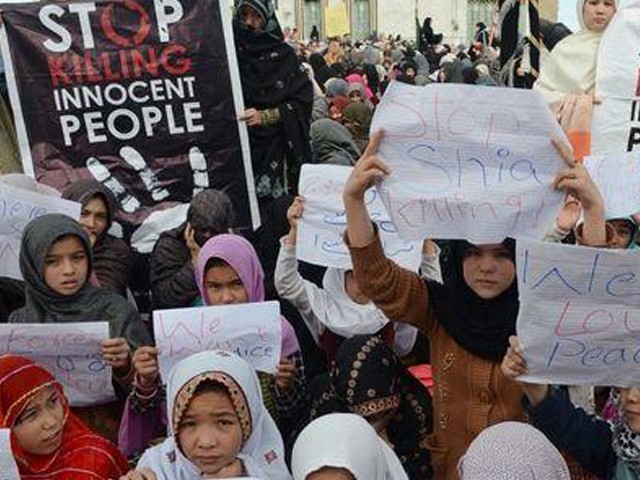
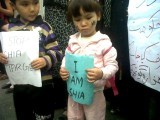
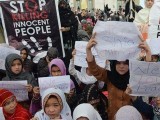 When Aslam Raisani, the then chief minister of Balochistan, was asked about the Mastung massacre in September 2011, he replied,
When Aslam Raisani, the then chief minister of Balochistan, was asked about the Mastung massacre in September 2011, he replied,
The responsibility of the attack was claimed by a militant organisation. Although religious militants reach levels that can rarely be witnessed elsewhere, it takes something special to incite a terrorist attack that leaves the grieving families in scenes you thought only existed in the most gruesome of horror movies.
After the killings, protesters refused to bury the dead and carried out sit-ins in Quetta for almost an entire week.
Although protests broke out in Karachi, Lahore and other major cities of Pakistan too, none came close to the gut-wrenching scenes witnessed by the Hazara community in Quetta.
Shia killings are not an alien concept in Pakistan. The attacks on Shias have their fair share of history in the country but the Hazara community seems to be the target of the bloodiest attacks. It is said that the persecution of the Hazara people goes back to the time of Babur, the first Mughal Emperor. Babur died in 1530 and unfortunately things have gone from bad to worse for them in these 500 years.
What is alarming is that the slightest notion of calm is followed by an even more brutal storm. Even more alarming is the fact that one-third of the victims are children and none of those responsible for the attacks have been brought to justice so far. All that has transpired was the run-of-the-mill suo motu notice taken by our former Chief Justice Iftikhar Muhammad Chaudhry.
And then our government decided to sack the inept Aslam Raisani from his position as chief minister and replaced him with Zulfiqar Ali Magsi.
But what impact did this have?
Zilch.
On February 16, 2013 the Hazara community was once again targeted in an attack that killed over 80 innocent people.
The question is, what is the solution to all this hatred and killings?
There are those who claim that religion and state must be separated in order to curb religion-based violence in Pakistan. However, this solution is easier said than implemented.
But then how can a region like Balochistan, which is plagued with violence of every kind, rid itself from this cancer?
There are no easy answers to this increasing menace and something that has been around for such a long time will not go away that easily. We can blame the foreign hands all we want and blame opposing spy agencies all we want but the truth is that none of this would have happened had we learned to keep our own house in order.
We never did that and now we must suffer the deadly consequences of the seeds we sowed ourselves.
It was heartening to see the support across the country for the Hazara community during these tough times. But it is even more important that this wave of support and solidarity not be limited to the events in 2013 only.
It must get bigger.
It must gain more momentum.
It must go on till the persecution of the innocent comes to an end.
It must continue till every Pakistani can breathe freely knowing that his religious inclination does not define the choice between life and death.
It must be pursued till our religious and ethnic minorities get the rights they deserve.
It must carry on till every section of our society – large or small – is treated on an equal level without any implicit or explicit prejudices.
It must go on till the antagonists are brought to justice.
It must be pursued till the curse of religious militants and extremism is fully and truly dead.
It must persist till the day when the only identity that each one of us has is ‘Pakistani’ – nothing more, nothing less.
Lest we forget the Hazara massacre on January 10, 2013.
Lest we forget: Remembering the victims of the 2013 Hazara massacre
By Salman Zafar

Shia killings are not an alien concept in
Pakistan. The attacks on Shias have their fair share of history in the
country but the Hazara community seems to be the target of the bloodiest
attacks. PHOTO: AFP


“The population of Balochistan is in millions, 40 dead in Mastung is no big deal.”When asked about what he would do for the grieving families of the victims, he replied,
“I can send a truckload of tissue papers for them to wipe away their tears.”Horrific as this may sound, the Mastung massacre was not the bloodiest day in the long history of Shia killings in the Hazara community. That ‘honour’ goes to the massacre on January 10, 2013 in Quetta where over 100 people were killed in three bomb blasts that ripped through the city.
The responsibility of the attack was claimed by a militant organisation. Although religious militants reach levels that can rarely be witnessed elsewhere, it takes something special to incite a terrorist attack that leaves the grieving families in scenes you thought only existed in the most gruesome of horror movies.
After the killings, protesters refused to bury the dead and carried out sit-ins in Quetta for almost an entire week.
Although protests broke out in Karachi, Lahore and other major cities of Pakistan too, none came close to the gut-wrenching scenes witnessed by the Hazara community in Quetta.
Shia killings are not an alien concept in Pakistan. The attacks on Shias have their fair share of history in the country but the Hazara community seems to be the target of the bloodiest attacks. It is said that the persecution of the Hazara people goes back to the time of Babur, the first Mughal Emperor. Babur died in 1530 and unfortunately things have gone from bad to worse for them in these 500 years.
What is alarming is that the slightest notion of calm is followed by an even more brutal storm. Even more alarming is the fact that one-third of the victims are children and none of those responsible for the attacks have been brought to justice so far. All that has transpired was the run-of-the-mill suo motu notice taken by our former Chief Justice Iftikhar Muhammad Chaudhry.
And then our government decided to sack the inept Aslam Raisani from his position as chief minister and replaced him with Zulfiqar Ali Magsi.
But what impact did this have?
Zilch.
On February 16, 2013 the Hazara community was once again targeted in an attack that killed over 80 innocent people.
The question is, what is the solution to all this hatred and killings?
There are those who claim that religion and state must be separated in order to curb religion-based violence in Pakistan. However, this solution is easier said than implemented.
But then how can a region like Balochistan, which is plagued with violence of every kind, rid itself from this cancer?
There are no easy answers to this increasing menace and something that has been around for such a long time will not go away that easily. We can blame the foreign hands all we want and blame opposing spy agencies all we want but the truth is that none of this would have happened had we learned to keep our own house in order.
We never did that and now we must suffer the deadly consequences of the seeds we sowed ourselves.
It was heartening to see the support across the country for the Hazara community during these tough times. But it is even more important that this wave of support and solidarity not be limited to the events in 2013 only.
It must get bigger.
It must gain more momentum.
It must go on till the persecution of the innocent comes to an end.
It must continue till every Pakistani can breathe freely knowing that his religious inclination does not define the choice between life and death.
It must be pursued till our religious and ethnic minorities get the rights they deserve.
It must carry on till every section of our society – large or small – is treated on an equal level without any implicit or explicit prejudices.
It must go on till the antagonists are brought to justice.
It must be pursued till the curse of religious militants and extremism is fully and truly dead.
It must persist till the day when the only identity that each one of us has is ‘Pakistani’ – nothing more, nothing less.
Lest we forget the Hazara massacre on January 10, 2013.
Thursday, January 9, 2014
The Man who Walked Through the Fire - Ch Aslam
The man who walked through the fire
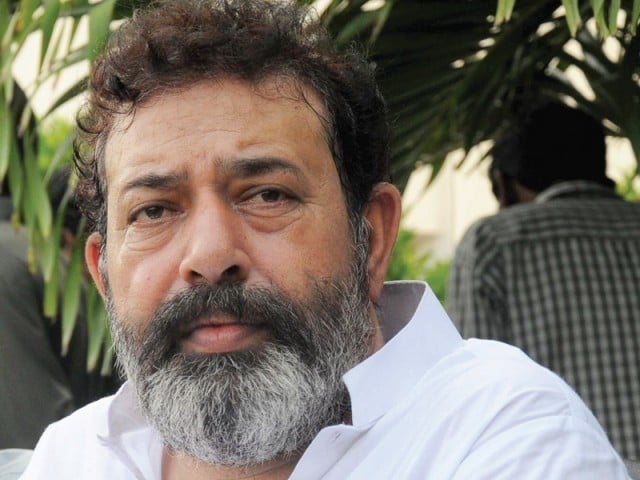 I walked into the newsroom and everyone was buzzing.
There was a blast in Hassan Square and someone was dead. It’s Karachi so
you know, this stuff happens every other day, but it wasn’t just any
other day and it wasn’t just someone.
I walked into the newsroom and everyone was buzzing.
There was a blast in Hassan Square and someone was dead. It’s Karachi so
you know, this stuff happens every other day, but it wasn’t just any
other day and it wasn’t just someone.
It was Chaudhry Aslam.
The Taliban finally got him. After God knows how many attempts, they finally got him.
In 2011, they blew up his house and then in January 2006 there was an assassination attempt made on him at Gizri by gunmen associated with a big political party.

I grew fond of him while working on The Express Tribune’s Karachi
desk. Anytime something went wrong in the city I saw pictures of
Chaudhry Aslam – standing, sitting, strolling in his trademark white
shalwar kameez with his buttons undone, a flashy watch and a cigarette;
telling everyone it’s going to be okay, we’re going to get the bad guy.
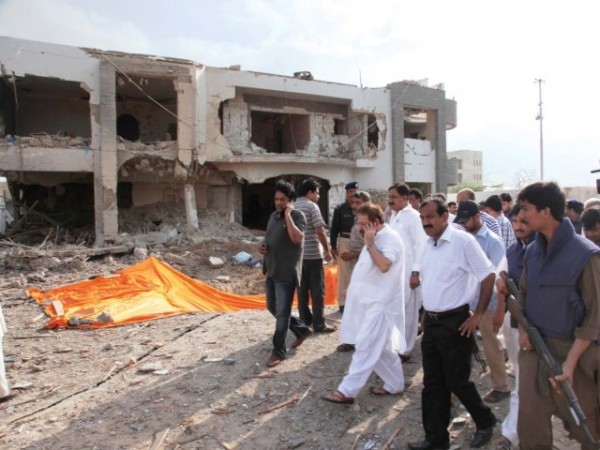
In September 2011, we did a profile on Chaudhry Aslam where the
reporter described him as the only officer who had the undisputed
reputation of being the ‘Sultan Rahi’ of the Sindh police force. A few days before the profile was published, the Taliban had bombed Chaudhry Aslam’s house.
The bomb went off early morning while Aslam and his family were still
at home – the front of their house was blown to smithereens.

I remember getting there to take photos and was in shock.
Aslam was with a group of people dressed in black inspecting the loss, while I was busy staring at bits and pieces of his house –there was a clock, a stuffed deer and pinkish orange curtains. Eyewitnesses said Chaudhry Aslam walked out of a black cloud of smoke and was the first to pick up the dead and injured. The Taliban had just blown up his house and you know what he said while pointing towards the eight by six foot crater?
![]()
A senior officer who used to work with Aslam told a reporter once that, one had to admire the merit of people like Aslam because if he hadn’t done some big things, the terrorist wouldn’t be after him, now would they?
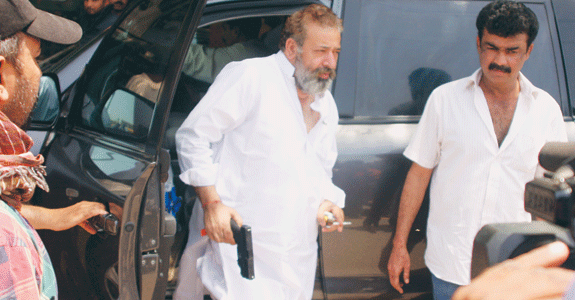
Well, they finally got him and it makes me very unhappy because that man had guts. He was a baller policeman; one who will be irreplaceable.
Rest in peace you brave man.

We have lost a brave man today, a man who had guts to stand against the Taliban. PHOTO: AFP
It was Chaudhry Aslam.
The Taliban finally got him. After God knows how many attempts, they finally got him.
In 2011, they blew up his house and then in January 2006 there was an assassination attempt made on him at Gizri by gunmen associated with a big political party.

Chaudhry Aslam’s house bombed. Photo: AFP

Photo: AFP

Result of the bomb blast outside Chaudhry Aslam’s house. Photo: AFP
Aslam was with a group of people dressed in black inspecting the loss, while I was busy staring at bits and pieces of his house –there was a clock, a stuffed deer and pinkish orange curtains. Eyewitnesses said Chaudhry Aslam walked out of a black cloud of smoke and was the first to pick up the dead and injured. The Taliban had just blown up his house and you know what he said while pointing towards the eight by six foot crater?
“I will bury the attackers in the same place here,”He was there every time there was an operation in Lyari. He was there at every blast site. He had a lot of enemies – from the Taliban to the gangsters of Lyari.
A senior officer who used to work with Aslam told a reporter once that, one had to admire the merit of people like Aslam because if he hadn’t done some big things, the terrorist wouldn’t be after him, now would they?

Photo:AFP
Rest in peace you brave man.
Wednesday, January 8, 2014
Subscribe to:
Posts (Atom)
























